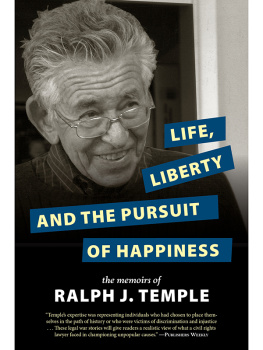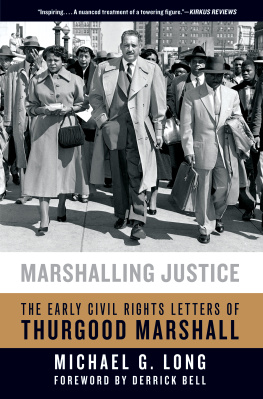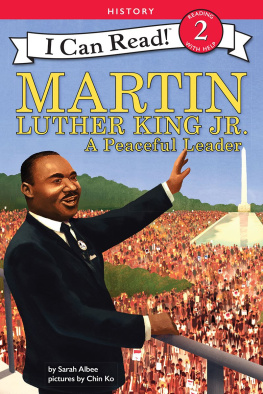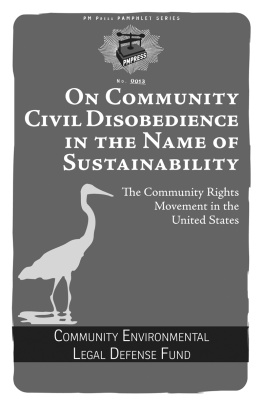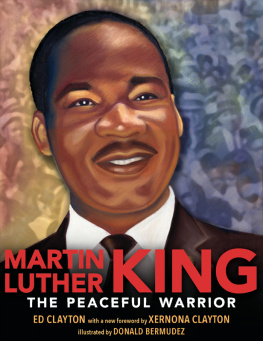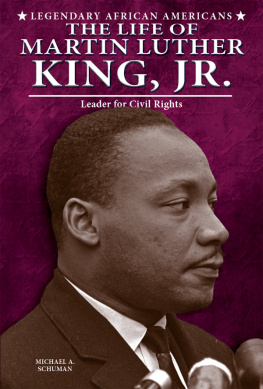Life, Liberty
and the Pursuit of Happiness
All rights reserved. No part of this book may be used or reproduced in any manner without the written permission of the publisher.
Published by Akashic Books
2011 by the Estate of Ralph J. Temple
Hardcover ISBN-13: 978-1-61775-104-2
Paperback ISBN13: 978-1-61775-314-5
eISBN-13: 978-1-61775-105-9
Library of Congress Control Number: 2011940041
All rights reserved
First printing
Akashic Books
PO Box 1456
New York, NY 10009
info@akashicbooks.com
www.akashicbooks.com
Of the many persons I came to admire during my years with the ACLU, I put none ahead of Ralph. He personifies the virtuesthat the ACLU displays at its best: a fierce commitment to civilliberty; imagination, energy, skill, and industry; integrity; persuasiveness; and a fine blend of irascibility, good humor, andanger. Ralph is moderate but never mealy-mouthed; passionatebut never hysterical; moral but never pious.
Aryeh Neier,
Former Executive Director, ACLU
For a lot of people coming out of law school looking for publicinterest jobs, there are a relative handful of people in thiscountry who are heroes, models to be followed, people who areknown among young lawyers and who are admired for the examplethey set. I think Ralph deserves that reputation as muchas anyone I know.
Ira Glasser,
Former Executive Director, ACLU
It isnt just that Ralph has a passionate concern to see that civilliberties are protected. I have that and so do you. We all sharea concern to guard our constitutional rights. But Ralph Templehas the knowledge and the skill to make this concern victorious.
Hilda Howland M.
Mason, District of Columbia City Council
TABLE OF CONTENTS

R alph J. Temple was born in England on October 18, 1932. Shortly before his father was called into the Royal British Army in 1940, Temple fled with his mother by boat from the Nazi attack on London and settled in Miami, Florida. He graduated from Miami Beach High School in 1951 and obtained a law degree from Harvard Law School in 1956.
He worked for Thurgood Marshall at the NAACP Legal Defense Fund from 195657, until being drafted into the United States Army. He taught law at Harvard, George Washington, and Howard universities before becoming an associate attorney at Arnold, Fortas & Porter in 1962.
A critical formative experience was Ralphs August 1964 trip to St. Augustine, Florida with the New York City Lawyers Constitutional Defense Fund while an associate at Arnold, Fortas & Porter; he spent two weeks there with Alvin Bronstein working to ensure compliance with the newly enacted 1964 Civil Rights Act. (Just two months earlier, Dr. Martin Luther King Jr. had been arrested in St. Augustine for sitting in at a restaurant.)
When moving to the American Civil Liberties Union, Ralph soon found his calling as a civil rights and civil liberties attorney, rising to the position of Legal Director of the ACLU of the National Capital Area in Washington, D.C., where he served from 196680. In 2008, the D.C. ACLU presented him with their annual Alan and Adrienne Barth Award for Exemplary Volunteer Service.
He was married to Sally Brown from 196081 and had two children, Kathy and Johnny. In 1990, Ralph married Ann Macrory and in 1996 they moved from D.C. to Ashland, Oregon, where Ralph was active in local politics on behalf of the ACLU and successfully opposed the use of tasers by the police.
Ralph kept up his legal activism and civic organizing until the day he passed away on August 27, 2011. On September 18, 2011, he was recognized by the ACLU Foundation of Oregon for his brilliant and tireless work on behalf of civil liberties.

This volume comprises Ralph J. Temples memoirs of his life and work. The majority of the stories and essays were written between 1998 and 2003, though also included are writings from before and after that period.


EARLY ENCOUNTERS WITH THE ALMIGHTY
1936

H ebrew school began when I was barely five years old, and over the next year or so I learned how to read Hebrew, and was introduced to Jewish history and ritual. At four or five, I even saw G-d, or at least thought I did. I was in shul with my father at the Shabbos service, and after a while I whispered to my father, Wheres G-d? Wheres heaven? My father, continuing to chant the liturgy, pointed upward, and I, misunderstanding, spotted and fixed in my mind the faces of two old men praying in the balcony. I can still see the narrow, pointedchin face of Heaven, and the oval, kindly face of G-d.
G-d was, of course, exalted. So sanctified, in fact, that Jews have no corporeal embodiment of G-d, like Jesus or Krishna or Buddha; they dont even write His name. In the Judaic texts, the Hebrew characters, pronounced Adonoy, are only an abbreviation of G-ds name. The notion stuck; I still compulsively follow my parents form of hyphenating the name in English. So the Lord was ineffable.
But He was also down-to-earth. My grandfathermy fathers fatherwas an orthodox rabbi. I met him in late 1940, when I was eight years old and my mother and I had just come to America. During the few months we had around each other before he unexpectedly passed on, he was sweet and attentive. He kept a gentle but deliberate eye on my religion, and once, when we were standing side by side at a public urinal in Brooklyn, he taught me the Hebrew prayer thanking G-d for a good pee. G-d has ever since been the donor of all gifts, special and routine.
The connection really began, though, before my grandfather and before Hebrew school. Even at three or four, in bed before sleep, I knew that my protracted prayers, calling attention to each family member and friend, were directed to a Listener.
G-d was also the first to experience my capacity for anger, apparently inherited from my mother. More than once, I had a fit as I struggled haplessly with cardboard cut-out airplanes that were supposed to be folded, with tabbed inserts holding the shape and parts together. They wouldnt hold, and I knew Who was responsible for my torment. He was no abstraction to me; the relationship was very personalone on One. Screaming, I would crumple and tear the planes, and, looking upward, unleash on the Almighty the full force of my limited repertoire of epithets.
Once I made the mistake of writing them down in a small notebook my parents had given me. There, carefully inscribed in my unmistakable handwriting, my parents discovered the sentences G-d is a sod and G-d is a bleatensod. These were the worstthe onlybad words I knew. My parents sat down with me and gingerly approached the subject. When they showed me the sentences in the notebook, I was shocked. For the first time in my life, I lied, and claimed that I had not written those words and didnt know who had. The two of them said that G-d loved me and they knew that I loved Him, and that if anything ever really bothered me, to let them know, because they loved me too. And that was that. They let me off the hook.

